There are many legitimate reasons you may wish to hide money in Canada. There are a few tricks to staying legal and private when moving money into or out of Canada. You may want to hide your CAD money after a messy divorce in Canada or from the scope of a legal battle in Canada. You may just not want family members or friends to be aware of all of your wealth in Canada.
Canadian residents often conceal their financial dealings with a variety of methods, including opening hidden bank accounts and omitting to declare their existence to appropriate parties in Canada. These include transferring money into the bank account of a new business partner in or outside Canada and selling assets for cash without first putting the money from the sale into a Canadian bank account. Some Canadian people legally disguise assets so that they cannot be appraised and then lie about having sold or otherwise disposed of them. purchasing costly products in Canada that are susceptible to being missed and overpaying for them with cash.
Creating separate accounts for your Canadian savings and checking accounts in Canada can also help in making your accounts easily accessible by 3rd parties in Canada. It will be harder for unwanted people to take your money if you have access multiple accounts in Canada. Another way to hide funds is to store your savings in a bank far away from Canada.It can also be very inconvenient for most Canadian residents to hide or add addtional privacy to their money accounts in Canada. However, it is a very effective way to manage risks with your overall wealth in Canada. If you want privacy Canadian residents should delete payment methods from online shopping sites and your browser. However, some available methods to hide money in Canada will not protect your money if your spouse finds out and has proof.
You can also keep your money hidden in a safe place in Canada, but holding large sums of physical CAD in Canada is not realistic. Even if you hire a storage unit in Canada, there will be a paper trail and there is a risk of theft. People in Canada will always trying to find ways to find out where you keep your money.
Luckily, there are many modern ways to add privacy and hide money in Canada. Using a virtual currency available in Canada such as Bitcoin can help Canadian people hide their money, but cryptocurrency prices are highly volatile in Canada. There are many modern international online money services, easily accessible for Canadian people so long gone are the days for the need to bury it in Canada, like a pirate. Remember that paper money is vulnerable to the elements in Canada, so it's best to use legitimate digital money services that are financially regulated to keep your money safe from prying eyes in Canada. Investing in stable financial markets in Canada, may also be another alternative.
 Visit XE Money Transfer
Visit XE Money Transfer
Used By: 280000000
Currencies Available: 76
Transfer Fees: none
Payment Methods: Bank transfer, credit card, debit card
iOS App : yes, Android App : yes
LiveChat:
Min Transfer: US$1.00
Max Transfer: US$500,000.00 (or equivalent)
Year Founded: 1993
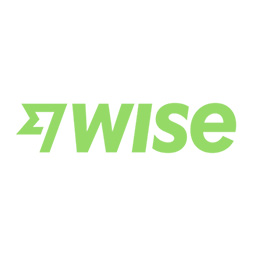 Visit Wise Multi-Currency Account
Visit Wise Multi-Currency Account
Used By: 11000000
Currencies Available: 54
Transfer Fees: 0.5%-1%
Payment Methods: Bank transfer, debit card, credit card, SOFORT transfer
iOS App : yes, Android App : yes
LiveChat:
Min Transfer: 1 USD
Max Transfer: 1000000 USD/transaction/day (personal), 3000000 USD/transaction/day (business)
Year Founded: 2011
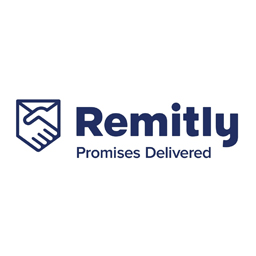 Visit Remitly
Visit Remitly
Used By: 3000000
Currencies Available: 63
Transfer Fees: 0-3.99$
Payment Methods: Bank transfer, credit/debit card
iOS App : yes, Android App : yes
LiveChat:
Min Transfer: US$1.00
Max Transfer: US$20,000.00
Year Founded: 2011
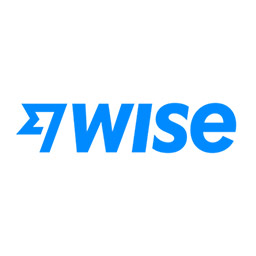 Visit Wise Business
Visit Wise Business
Used By: 11000000
Currencies Available: 55
Transfer Fees: 0.5%-1%
Payment Methods: Bank transfer, debit card, credit card, SOFORT transfer
iOS App : yes, Android App : yes
LiveChat:
Min Transfer: 1 USD
Max Transfer: 1000000 USD/transaction/day (personal), 3000000 USD/transaction/day (business)
Year Founded: 2011
 Visit Wise
Visit Wise
Used By: 11000000
Currencies Available: 54
Transfer Fees: 0.5%-1%
Payment Methods: Bank transfer, debit card, credit card, SOFORT transfer
iOS App : yes, Android App : yes
LiveChat:
Min Transfer: US$1.00
Max Transfer: US$1,000,000 (varies based on currency)
Year Founded: 2011
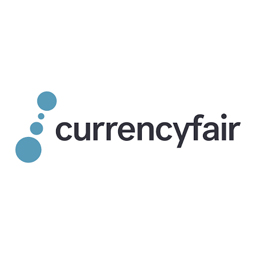 Visit CurrencyFair
Visit CurrencyFair
Used By: 150,000
Currencies Available: 17
Transfer Fees: 0.45%
Payment Methods: Bank transfer, debit card
iOS App : yes, Android App : yes
LiveChat: yes
Min Transfer: £5.00 (or equivalent)
Max Transfer: £10,000,000.00 (or equivalent)
Year Founded: 2009
 Visit InstaReM
Visit InstaReM
Used By: 130000000
Currencies Available: 11
Transfer Fees: 0%-1%
Payment Methods: bank transfer, POLi payment (Australia), debit card (EU residents), ACH Pull (US residents), FPX (Malaysian residents)
iOS App : yes, Android App : yes
LiveChat: yes
Min Transfer: $1 (minimum sending amounts could differ based on certain currency pairs)
Max Transfer: No limit (different countries have regulatory limits on outward and inward flow of remittances originating from or to the country)
Year Founded: 2014
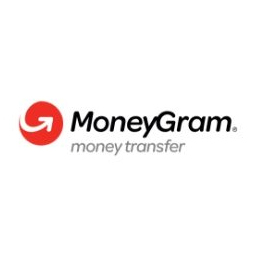 Visit MoneyGram US
Visit MoneyGram US
Used By: 150000000
Currencies Available: 46
Transfer Fees: 0-1.99$
Payment Methods: pay by card or directly from your bank account
iOS App : yes, Android App : yes
LiveChat:
Min Transfer: none
Max Transfer: 3000 USD
Year Founded: 1940
 Visit Xoom
Visit Xoom
Used By: 250000000
Currencies Available: 4
Transfer Fees: 0$-40$
Payment Methods: Bank transfer, debit/credit card, PayPal balance
iOS App : yes, Android App : yes
LiveChat: yes
Min Transfer: US$10.00
Max Transfer: 2999 USD/day, 6000 USD/month, 9999 USD/3 months
Year Founded: 2001
 Visit Skrill
Visit Skrill
Used By: 120,000
Currencies Available: 33
Transfer Fees: none
Payment Methods: Cash, bank transfer, debit card, credit card, e-wallet, cryptocurrency (depending on country)
iOS App : yes, Android App : yes
LiveChat: yes
Min Transfer: US$1.00 (varies based on certain currencies)
Max Transfer: US$2,500.00 / day (weekly and monthly limites also apply)
Year Founded: 2001
 Visit Scotiabank
Visit Scotiabank
Used By: 25,000,000
Currencies Available: 23
Transfer Fees: none
Payment Methods: Bank transfer, debit card, credit card, apple pay, google pay, Scotiabank Saddletone gift cards
iOS App : yes, Android App : yes
LiveChat: yes
Min Transfer: none
Max Transfer: 10000 USD
Year Founded: 1832
 Visit OFX
Visit OFX
Used By: 1000000
Currencies Available: 54
Transfer Fees: 15 AUD below 10k AUD
Payment Methods: ETF, BPAY (Australia), Direct debits
iOS App : yes, Android App : yes
LiveChat: yes
Min Transfer: 1000 USD
Max Transfer: none
Year Founded: 1998
 Visit Credit Suisse
Visit Credit Suisse
Used By: 1000000
Currencies Available: 1
Transfer Fees: none
Payment Methods: eBill, QR-bill, standing orders, payment orders, online & mobile banking, direct debit, multi-payment orders, bank transfer, debit card, credit card
iOS App : yes, Android App : yes
LiveChat: yes
Min Transfer: none
Max Transfer: none
Year Founded: 1856
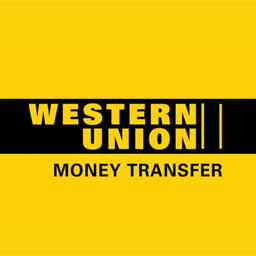 Visit Western Union
Visit Western Union
Used By: 15000000
Currencies Available: 38
Transfer Fees: up to 3%
Payment Methods: Cash, bank transfer, debit card, credit card (varies from country)
iOS App : yes, Android App : yes
LiveChat:
Min Transfer: $1.00
Max Transfer: $10,000.00 (varies)
Year Founded: 1851
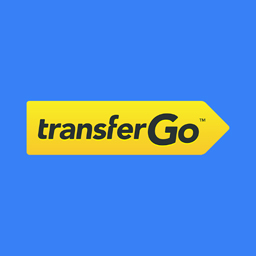 Visit TransferGo
Visit TransferGo
Used By: 2,500,000
Currencies Available: 39
Transfer Fees: 0.5%-1.5%
Payment Methods: Bank transfer, debit card, credit card
iOS App : yes, Android App : yes
LiveChat: yes
Min Transfer: 1.5 GBP
Max Transfer: 1000000 GBP
Year Founded: 2012
 Visit Moneycorp
Visit Moneycorp
Used By: 15000000
Currencies Available: 161
Transfer Fees: none
Payment Methods: debit card via our online platform or a wire transfer, cash
iOS App : yes, Android App : yes
LiveChat:
Min Transfer: 50 USD/GBP/EUR
Max Transfer: none
Year Founded: 1962
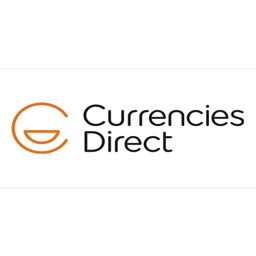 Visit Currencies Direct
Visit Currencies Direct
Used By: 325,000
Currencies Available: 22
Transfer Fees: none
Payment Methods: Bank transfer, debit card
iOS App : yes, Android App : yes
LiveChat: yes
Min Transfer: none
Max Transfer: 25000 GBP
Year Founded: 1995

Hiding money involves a lot more than just putting CAD under your floor boards; it also involves preserving your financial privacy in Canada so that you are not unnecessarily exposed to any factors that could wish to cause you or your Canadian money damage. People who work in professions that expose them to a greater danger of legal action in Canada, such as attorneys, physicians, and Canadian company owners, have a greater need to protect the privacy and safety of their Canadian financial information, including their physical and digital CAD money. Discovering legitimate means by which to conceal and safeguard your riches in Canada in the event that something untoward occurs might very well turn out to be the most astute decision a Canadian person can make.
First, don't use the same computer as your partner you're hiding money from in Canada. The same goes for Canadian bank accounts. If you have multiple Canadian accounts, you should keep them separate from each other in Canada. Another trick is to create several Canadian savings accounts. Automatic transfers in Canada and term deposits are both great ways to save money without anyone knowing. Finally, keep documentation of where you put the money as tracking your CAD may become complicated. Hiding some of your money from people in Canada can help limit your overall risks and your life more secure as in most cases only your Canadian accounts are at risk in personal legal battles.
For small amounts of money Canadian residents may be able to purchase gift cards, which are not tied to your name in Canada. Gift cards and prepaid debit cards can add privacy to certain purchases and avoid being detected by Canadian identity thieves or linked to your name. Most gift cards in Canada are tied to your name, so you will need to check the level of privacy offered to you in Canada, before you buy. Another good idea is to buy non-specific prepaid gift cards from credit card companies in Canada. You can also buy these at Canadian supermarkets or online using a variety of private payment methods. In order to stay under the radar, Canadian people can purchase a few of these cards and hide them.
Lastly, try to protect your relationships in Canada. If you have a partner who is irresponsible with money in Canada, don't hide your money from them or make it obvious. This could be a serious problem in the future if they feel you dont trust them. You should know what the consequences are before you decide to hide your money in or outsite Canada. If you don't feel safe sharing your finances with your Canadian partner, consider hiring a Canadian accounting specialist for help. If you're in an abusive relationship in Canada, and you feel you need to protect your Canadian assets, it's crucial to protect yourself before making the decision to hide your money from people in Canada.
Taking the proper precautions can help you to avoid pickpockets in Canada and other thieves while you're traveling. These thieves have mastered the art of stealth and can strike Canadian victims with a level of skill that is astonishing. It's possible to be robbed while wearing a leather wallet or even a maxi-pad wrapper in Canada. Canadian travellers can also carry a decoy wallet in the top of your bag. If you're worried about being pick pocketed in or outside Canada, you can keep it in a secure place or simply throw it away in case of a mugging.
Another common way for Canadian people to hide money and valuables is to wear flip-flops. These inexpensive and effective methods are a great way to keep your valuables out of sight while you're traveling around outside Canada. Canadian people should keep the money they need in separate places while traveling to avoid getting mugged or picked on by thieves in Canada. Canadian travellers should split your money and valuables between two secret locations: one in your pocket, another in a hidden location, and a hidden compartment in your flip-flops.
Many people keep large amounts of cash outside of Canadian banks and financial institutions due to the lack of trust these organizations have in their safety. Although not recommended due to the fragile nature of physical money in Canada to the elements, Canadian people should at least be aware of how to store large amounts of cash in Canada. Usually, people keep small sums of cash in CAD at home, but the Canadian banks will likely not accept bills larger than 50 CAD. That means that you should keep a stash of money at home in Canada equal to six months of spending. If you do have to store large sums of money, you should store larger bills in fewer amounts in Canada.
Keeping cash in your Canadian wallet can serve as an emergency backup. It's a great way to pay vendors and other unexpected expenses in Canada. But make sure to keep more than a thousand CAD in your home safe. You should store your CAD cash in a fireproof and waterproof safe in Canada. Another way to store CAD cash is to put it in fireproof bags. You can also store them in jars and tins, but understand that you can only do this with very small amounts of CAD in Canada. Keep in mind that the attic is often the first place to burn up in case of a house fire in Canada. Another common place to hide cash in Canada is underneath mattresses and behind picture frames. But this is very old fashioned with the many modern international money services and ewallets available in Canada.
Most wealthy Canadian people would want to protect their money from the government in Canada. While it can be difficult to hide money from the Canadian government, there are some ways to legally shield your assets from any legal issues or taxation in Canada. These methods include Canadian and international real estate, commodities markets, stocks, gold, and offshore accounts outside Canada. The first method involves investing your money in Canada. By investing in the stock market, you are paying for commodities that will be received at a later date in Canada. This type of investment does not require much liquid cash of Canadian residents and is ideal for emergencies in Canada. It also reduces your need for liquid cash, which is important if you're planning to hide your money from the Canadian governments.
Aside from hiding your money in Canada, you can also use retirement investment accounts to conceal it from Canadian lawyers and creditors. In many countries like Canada, retirement investment accounts offer a certain degree of protection and privacy against Canadian taxation. Furthermore, retirement funds are protected by Canadian laws that prevent them from being seized. This way, you'll have more money to spend on other activities in Canada. In some cases, a retirement account can be a good choice if your money is in a safe and secure investment account in or outside Canada.
Putting your money into domestic and commerical real estate and property internationally or in Canada, can be a way to keep your money private and hidden from some people in CAD. Some of your Canadian property assets if linked to you personally rather than a business entity, may be at risk from loss from divorce or other legal proceedings in Canada. Property in addition may offer Canadian investors financial returns over the long term. Most real estate transactions in Canada requires borrowing money, and debt is not taxed in Canada. Although Canadian considering property to hide money may get financial returns, Canadian property investors need to understand that property prices in Canada may fall.
You should understand that real estate is not for everyone in Canada. Despite the many advantages it offers, it can also be risky. Property in CAD can fall into disrepair or be a poor location. Additionally, investing in real estate in Canada involves regular maintenance and insurance. This makes it a worthwhile endeavor for those who do not mind paying a bit of money for a safe way to turn capital into assets in Canada. Investing in real estate is a great way to build wealth in Canada, so make sure you know what you're getting yourself into.
Moving money into stable commodities investments is a way for some Canadian people to hide money in Canada. The most common commodities for Canadian people are agricultural products such as grains, livestock, and softs, like oil. Gold, silver and gas are also popular commodities in Canada. These commodities can be traded on seasonal cycles and are extremely volatile in Canada. This volatility means that Canadian investors need to be prepared for volatile price swings and plan accordingly. Commodity prices move opposite to stock and bond prices, so investing in commodities from Canada does hold risk. Commodities have low volatility, making them an excellent hedge against inflation in Canada. Commodities trading platforms do require Canadian investors to verify their ID and proof of Canadian address, but open commodities trades can usually be kept out of view of legal disputes in Canada. If you aren't comfortable with risk, Canadian investors can invest in ETF contracts, which track of a particular commodity or set of commodities in and outside Canada.
Investing in Canada stock is a great way to earn money and diversify your portfolio. However, it is important to remember that Canadian stock prices are subject to a range of factors, including the company's financial health, its industry, and the general economy and political climate. Fortunately, the internet has made the research process easy in Canada. Understand that stock investments have a risk of loss for Canadian traders. Choose stocks that sell goods or services that people want to buy. In this way, you will increase your portfolio's diversity and minimize your risk. Any open stock trades you have with your stock broker in Canada, are not usually public knowledge. Your Canadian stock broker will only release your personal information at the request of international or Canadian law officials. And there has to be a valid reason why your Canadian information is released.
Before you start investing in Canada stocks, it is important to decide on your time horizon and risk profile. Most Canadian brokers charge transaction fees and commissions to stock traders in Canada, which can add up quickly, especially if you're an inexperienced Canadian investor. Some Canadian stock brokers also charge account maintenance fees, so be sure to read the fine print carefully before deciding on a stockbroker that matches your needs in Canada. It is a good idea to speak to a stockbroker in Canada before investing. They can help you find Canadian stocks that suit your investment profile and time horizon and money privacy needs in Canada.
Precious metals are natural, rare metallic chemical elements with high economic value in Canada. These metals have many uses in Canada, including jewelry, coins, and precious stone collections. Gold is the most popular precious metal and the most widely-investable in Canada. Its unique properties make it the ideal choice for both investment and speculative purposes in Canada. Gold has a long history of monetary use, and it is also the standard for Canadian currency (CAD). Its inherent durability has made it an excellent choice for a store of value for Canadian people holding and moving money. Many Canadian investors seek out gold during times of turbulence, and the price of gold is used as a hedge against rising inflation in Canada.
Silver is the second most common precious metal and an important industrial metal in Canada. It is used in solar panels, which is thanks to its electrical properties. It is also a store of value for Canadian investors, making it more volatile than gold in Canada. During periods of high demand, silver prices may even outperform gold's in Canada. The silver price can be as high as ten times higher than gold's! When it comes to the price of gold, however, silver tends to move in the opposite direction. Both gold and silver have high liquidity in Canada, which means they will be easy to sell, very quickly.
Gold and silver purchased with cash is logged and is traceable in Canada. Only very small physical gold transactions cannot be traced easily. Even purchasing jewerly in Canada that has a certain value has to be reported by the jeweller. Buying large quantities of gold and silver requires Canadian residents to show proof of ID. Although buying physical gold and silver may not be practical for Canadian people wanting to hide larger sums, buying gold and silver commodities with an online broker through various gold and silver financial instruments may be a way for Canadian residents to remain private with their money.
Investing in gold and silver can help protect your portfolio from market volatility in Canada. They are considered safe-haven assets that provide a safe store of value against the Canadian central banks loose monetary policy in Canada. While you can increase your exposure to these metals by buying gold and silver mining stocks from Canada, this is risky and can cause Canadian metals traders to experience significant losses in Canada. Investing in gold and silver is considered a stable solid choice in Canada. These precious metals have historically increased in value for Canadian traders, but you will have to wait for the market to increase its price in Canada, which may take time. Gold prices can take several years to recover to a profit-making level, and Canadian investors should diversify their portfolios. Canadian investors may want to buy more than one type of precious metal, as the price will fluctuate as the Canadian and global economy changes.
A prepaid card in Canada works like a debit card, but without a Canadian bank account. Instead of using a traditional bank account in Canada, Canadian consumers load money onto a prepaid card and then use the CAD money they have loaded. When the CAD money is depleted, the Canadian card user can simply reload it again. Today, about 7 million households in Canada do not have a Canadian bank account. For these individuals, prepaid cards are a convenient alternative to traditional Canadian bank accounts in Canada. A prepaid card is similar to a Canadian debit card, but instead of a bank account, a prepaid card is backed by a credit card network in Canada. Using one is similar to using a standard Canadian debit card. Prepaid cards in Canada have a credit limit that is based on the amount of money loaded onto the card. A prepaid card in Canada can be used to make purchases almost anywhere a credit card is accepted. Some prepaid cards do not have the card holders name on them, which can offer a level of privacy to Canadian clients. Certain transactions you may wish to keep private in Canada can be ring fenced by using a Canadian prepaid card.
Financial secrecy can be beneficial in some circumstances in Canada, but there are risks and consequences to keeping such information secret. For example, your partner in Canada may be more suspicious if he or she finds out about your Canadian bank account. If you choose to hide your finances from your partner, you should carefully consider the possible consequences in Canada. It is important to remember that keeping money secrets is a sign of deeper problems in the relationship. Canadian banks have strict financial regulations, and reporting requirements they have to follow. Hiding money in a Canadian bank will be difficult but may be possible if you are hiding the money from a friend or relative in Canada. Only Canadian or internationally law enforcement can see every Canadian bank account held agains a Canadian residents name.
Many people keep their money in a hidden account in Canada, but you must of course have no postal correspondece or paperwork that can be found. Many offshore bank accounts are available in Canada, but you will have to contact a Canadian tax specialist to make sure you stay well within Canadian law. If you wish a Canadian bank account to remain secret there should be no traceable transactions to and from other well know bank accounts you hold, internationally and in Canada.
People in Canada have quite a few choices of where they can put there money. Online ewallets like Skrill, PayPal, Neteller all offer online wallets and Canadian residents can create an online account within 10 - 15 minutes. Online money transfer services in Canada also offer money escrow services and offer very good rates as well as multi currency options to almost anywhere in the world from Canada. Many money services are multi national companies that service Canadian residents in Canada, all offer a level of privacy, but they do require a verified account to transfer large sums of money in and out of Canada.
A few things to consider when choosing a place to keep your cash in Canada include the rate of return, the liquidity of the money, the length of time before you need to access it and the privacy level your require in Canada. You should also think about investment costs and safety of your money and assets you buy or move in Canada.
While most Canadian bank savings accounts are safe, interest rates continue to rise. Even with the rate hikes, most Canadian banks are only paying a small fraction of the 1% interest rate they used to pay. Inflation in Canada, meanwhile, is increasing. This situation has led many Canadian consumers to look for safer and more lucrative alternatives. You can also find a Canadian bank account that can provide you with direct deposit of your paycheck two days earlier.
All Canadian bank accounts are trackable by Canadian authorities, if flagged. If you want to protect your money in Canada, the best way to hide it online is to keep it out of your checking account in Canada, have multiple accounts and keep money transfers small. A Canadian checking account is used for spending, and your balance is logged as soon as you pay a bill. Canadian savings accounts, on the other hand, are where you put your money until you need it in Canada. But transferring money from your savings to your checking account in Canada creates a mental barrier. When your savings account balance is declining, you will feel guilty for moving it from your savings account to your checking account. Also as you move money from one account to another in Canada, a link to another one of your accounts can be found if someone has access to your Canadian bank statements.
Transferring ownership of your Canadian assets to a reliable third party, most frequently a member of your immediate family in Canada, is yet another strategy that has been utilized to protect and hide money in Canada, but with variable degrees of success. If there are issues in the partnership at a later point in time, you are basically legally giving up ownership of your Canadian assets to another person, which might have negative consequences in the long run for you and your money in Canada.
If you explicitly transfer ownership of any Canadian money in order to shield the assets from an ongoing legal dispute in Canada, you run the risk of being accused of engaging in fraudulent transfer of ownership. Even though you have transfered the ownership of your Canadian money, the beneficary could be at the same amount of risk from legal disputes in Canada.
Offshore Asset Protection Trusts, have the potential to offer high levels of financial anonymity to Canadian residents as well as protection if they are correctly established in the appropriate country outside of Canada. These are specialized forms of irrevocable trusts that provide Canadian residents the ability to serve in many capacities at the same time, including those of settlor and beneficiary outside of Canada. The Cook Islands, Belize, and Cyprus are three of the most favorable countries in which to establish an offshore asset protection trust also known as a APT in Canada. offshore protection trusts can be costly for Canadian residents and will require legal and tax professionals in Canada.
Due to the fact that Canadian domestic registered companies are considered to be independent legal entities in Canada, their Canadian owners are afforded an increased level of privacy as well as protection in Canada. Offshore limited liability companies are companies that Canadian people can register that are founded in one of the numerous favorable offshore countries outside of Canada. These LLCs give its Canadian owners total protection from liability claims and high levels of secrecy for people in Canada.
Opening a bank account in a foreign country outside of Canada is one of the most straightforward methods to secure better financial privacy for oneself in Canada. Offshore financial centers accessible to Canadian residents in some jurisdictions are well known for the remarkable advantages they provide to their Canadian customers, looking for financial privacy. An offshore trust is established in conjunction with an offshore company account outside Canada. This combination continues to be the most effective method for protecting a Canadian residents assets while also maintaining one's privacy and security outside of Canada.
The utilization of Canadian retirement funds for hiding money unquestionably still has a place, given that these funds may offer a certain degree of discretion as well as safety to Canadian residents. Even in the event of legal action or personal bankruptcy in Canada, the rules of Canada prevent Canadian retirement savings from being garnished or otherwise taken away from their Canadian owners in the event of legal dispute in Canada. Canadian retirement accounts can do an excellent job of preserving your money in some circumstances, but they do not give the same type of anonymity as a offshore financial structures that are outside the jurisdiction of Canadian law.
Having a Canadian bank account is probably the safest place to put your money. However, in recent years, a lack of trust in Canada banks has led to Canadian individuals searching for other venues to invest their money. The Canadian housing bubble triggered the Great Recession, a time of market volatility and uncertainty in Canada. In these uncertain times, Canadian banks are becoming safer. Also Canadian bank accounts offers financial regulation protection for your deposits. Government bonds in Canada are also considered safe, but offer low returns. Real estate is another option for investment, although it is riskier as Canadian housing markets may fall if we go into a ecomomic recession in Canada.
50 years ago Canadian people may have hiden their CAD money under the bed or pillow. This method is in no way realistic for anyone in Canada. A Canadian bank account is a secure place to store your money, but it's not completely safe. Most Canadian banks only protection upto a certain value in a Canadian bank account. If you're worried about losing your money in an emergency in Canada, you may want to keep some cash at home. Besides, the cash can be safely hidden in a safe if you're not using it in Canada.
You should know the difference between tax avoidance and tax evasion in Canada. Tax avoidance involves following the rules and keeping more of what is yours. You should always stay within Canadian law and pay any taxes you owe in Canada. Tax evasion involves committing crimes such as lying or hiding money in Canada. It's essentially stealing. By following the rules, you can cut your tax bill legally in Canada. Depending on your situation it's even illegal to hide assets or income in Canada. In these cases, you may be prosecuted, if you do not follow Canadian law.
The Canadian tax office can reclassify your transactions based on their substance in Canada. If you disguise the nature of your transactions in Canada, they might not qualify for a deduction. Any trading losses you have can be offset against your taxes in Canada. Taking advantage of tax credits in Canada is a great way to reduce your tax bill. The Canadian government offers many different tax credits on different items, such as energy-efficient products, health insurance premium payments, and tax breaks for low-income households in Canada. You should carefully examine all of your purchases to determine if you're eligible for a tax credit in Canada.
Many people in a tax-constrained country like Canada wish to keep their cash away from the government. It is true that the Canadian government needs money to survive and must collect revenue from Canadian individuals in order to pay their bills in Canada. There are many ways to hide money from the Canadian government, but you must remain within Canadian law. For instance, you can open a foreign bank account outside of Canada to move income or legal profits. The money can then be transferred to an Canadian offshore account where it is inaccessible to the Canadian government.
You can find a number of places to hide large sums of money. Using a hidden space in a closet or under a mattress is not a clever way to protect your cash in Canada. Many people keep large amounts of cash outside of a Canadian financial institution in Canada. However, you should always make sure your Canadian cash is safely stored from theft and scammers. One way is to keep it in a fireproof or waterproof safe somewhere you have easy access to in Canada. Keeping cash in one location is not a good idea, as the money could be stolen or harmed by fire or water in Canada. It is best to have several Canadian and international locations to hide your money with regulated financial institutions, accessible by you in Canada. So that you can avoid the risk of losing all your CAD in one situation in Canada.
Primative ways to hide your cash in an attic hatch in your house in Canada. The CAD money can be hidden behind the disk or in between the plastic cover and disk in Canada. Aside from DVD cases, plant pots can also be used to hide smaller amounts of cash in Canada. Another way to hide large amounts of cash in Canada is to bury it in the ground, although this is never a great idea as Canadian money is at risk to the Canadian weather.
Some people like to keep a few CAD in their house as a safety net in Canada. For example, they might keep a few hundred CAD in their home as a backup plan for emergencies, or carry a few hundred CAD in cash at all times. A good rule of thumb is to carry a day's worth of your expenses in Canada in cash.
However, there are some regulations about how much money you can keep at home in Canada. In most countries, there are limits on the amount of cash you can keep. In some countries, this amount is restricted to the money you pay taxes on in Canada. The amount of cash you can keep at home is determined by your tax bracket in Canada. Any money found in your home by Canadian authorities can be confiscated if you cannot explain where it came from. While you can keep a certain amount of cash in a safe deposit box in Canada, it is advisable to keep the money out of sight at all times.
There are no laws that state you must report more than ten thousand CAD in cash in Canada. You can, however, carry as much as you like if you're traveling within Canada. The amount of cash you can legally carry on an international flight is more limited in Canada. It only matters when you're entering or leaving Canada. You'll have to declare any amount of CAD cash or any other currency worth more than a few thousand CAD.
It is easy for a fraudster to steal your password and username in Canada, and then drain your Canadian bank account. In some situations, you can't even trace the source or destination of your CAD money. At all times when hiding and moving money, avoid losing your money due to fraud or insecurity in the banking system in Canada. Be aware of theft at all points international and in Canada.
While most Canadian banks protect your deposits to savings accounts, some Canadian banks are prone to mishandling money in what they consider dormant accounts.
In addition to storing money in a Canadian checking account, you could also hiring a bank safety deposit box in Canada. A Canadian safety deposit box can hold as much as you can fit in it. Most Canadian bank vaults are filled with millions of CAD worth of cash, gold, silver and diamonds. Local Canadian bank safety deposit boxes can be a safe option. While physical cash is becoming less important as more of our money is digital in Canada, it's still wise to keep some cash in CAD. You'll want to know what risks you face with keeping CAD cash in your Canadian home. Then you can make the right decisions to keep it in an offical Canadian bank safe in Canada. If you've been saving your money for a rainy day, you'll appreciate the peace of mind knowing at least some of your money is protected in an official Canadian bank or bank safety deposit box that is financial regulated in Canada.
The most important thing is that you check the rules and regulations of your Canadian bank's safe deposit box. If you don't follow their rules, you risk having your box seized and the contents of your Canadian cash destroyed.
A safe deposit box is a good option for storing cash in a secure location in Canada. It is a fire and burglar-proof box, but it does not come with insurance.
Canadian paper money easily absorbs moisture from the air. So, be sure to store your CAD paper currency somewhere where the humidity is low, but not too high in Canada. Canadian money will eventually degrade if not stored and handled correctly in Canada. CAD money storage should be waterproof, fireproof and be constantly monitored. keep your CAD in a location that is not obvious to intruders under lock and key.
In countries where the tax laws are strict like Canada, hiding money from the government is difficult for most Canadian residents. But it is possible to find ways to keep your money hidden from the Canadian government legally. Some of the ways include investing in various assets internationally and in Canada. These include bonds, stocks, real estate, and commodities available to Canadian residents. By investing in certain financial assets, you are storing your Canadian CAD money in assets that is hard for the Canadian government to tax. Investing in Canada financial markets like stock market assets means that you will have less liquid cash available to you in Canada, and your investments are at risk of trading loss.
Another way to hide money from the government in Canada is through retirement accounts. There are laws in Canada that limit the amount you can contribute to certain Canadian retirement investments. You can't legally withdraw money from your some retirement assets in Canada within certain timeframes, but you can hide it legally through this method in Canada. Some investments have minimum contribution levels and make sure you never lose access to your Canadian money. Other non-physical assets to hide money legally in Canada are Canadian and international bank accounts and credit cards.
Taking a small part in a business is another way to hide money from the government in Canada. It can save you money while leveraging your Canadian business liabilty amongst partners in Canada. This method can be very useful if you want to hide your funds from the government for tax purposes in Canada. When protecting and ensuring the privacy and safety of your money in Canada, always think of the long term.
We list reviews for the best money transfer services for sending money to Canada you can check out some of the best Canada money services below.
If you would like to see XE Money Transfer compared against some of the best XE Money Transfer alternative Canada money tranfer services available right now you can do so by clicking on the links below.